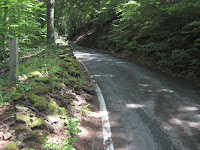Kazuo Ishiguro
The Remains of the Day (5*)
What a delightful book this is, both funny and sad, a story of an obsessively fastidious butler and unrequited love. I saw the 1993 Anthony Hopkins / Emma Thompson film when it came out but suspect the book will leave a much stronger impression.
Mr. James Stevens, an ageing, nineteen-fifties, top class, old fashioned English butler, embarks on a solitary motoring trip to the West Country, giving space to reflect upon his role in personal and public events during his lifetime. He recalls gatherings of naïve Nazi sympathisers and anecdotes of “great” butlers who could deal with tigers in the dining room without alarming the guests.
The first-person narrative is highly formal in keeping with the character, but it flows easily with both hilarious and heartbreaking effect. In thinking about the question of ‘what is a “great” butler?’, it occurs to him there is a dimension he has not fully considered. The way he says it is typical of his voice throughout the novel:
“I have never in all these years thought of the matter in quite this way; but then it is perhaps in the nature of coming away on a trip such as this that one is prompted towards such surprising new perspectives on topics one imagined one had long ago thought through thoroughly. I have also, no doubt, been prompted to think along such lines by the small event that occurred an hour or so ago – which has, I admit, unsettled me somewhat.” (p123)which leads to quirky diversions about the surprising new perspective and the recent and significant “small event” which begins when he runs out of petrol on a remote road.
Stevens is the most unreliable of unreliable narrators, unable to see he has spent a lifetime turning himself into a robot: stiff, formal, handling unexpected events with aplomb but taking little notice of personal social cues. One thinks of Sheldon Cooper in the The Big Bang Theory. You want to hand him an Asperger questionnaire.
Gradually, the mask peels away. Woven into the fabric of his reminiscences is a touching story of unrequited love. Memories of Miss Kenton, a former housekeeper, flood back during the journey, the real purpose of which is to visit her in the unspoken hope she will return. It becomes clear she would have married him had he only been able to set aside his mechanistic self-deception. Instead she had married someone else and moved away over two decades earlier. He begins to see the different path his life might have taken.
At the end, after leaving Miss Kenton, he meets a jovial man on the seafront at Weymouth and tells him about his career.
“… look mate, … if you ask me, your attitude’s all wrong, see? Don’t keep looking back all the time, you’re bound to get depressed … you’ve got to keep looking forward. … You’ve got to enjoy yourself. The evening’s the best part of the day. You’ve done your day’s work. Now you can put your feet up and enjoy it.” (p256)One hopes he can take the advice to be more positive and make the best of what remains of the day.
“After all, what can we ever gain in forever looking back and blaming ourselves if our lives have not turned out quite as we might have wished?” (p256)A warning for a memoir writer if ever there was one, although I believe my own motivation is celebration rather than regret.
Key to star ratings: 5*** wonderful and hope to read again, 5* wonderful, 4* enjoyed it a lot and would recommend, 3* enjoyable/interesting, 2* didn't enjoy, 1* gave up.
Previous book reviews












